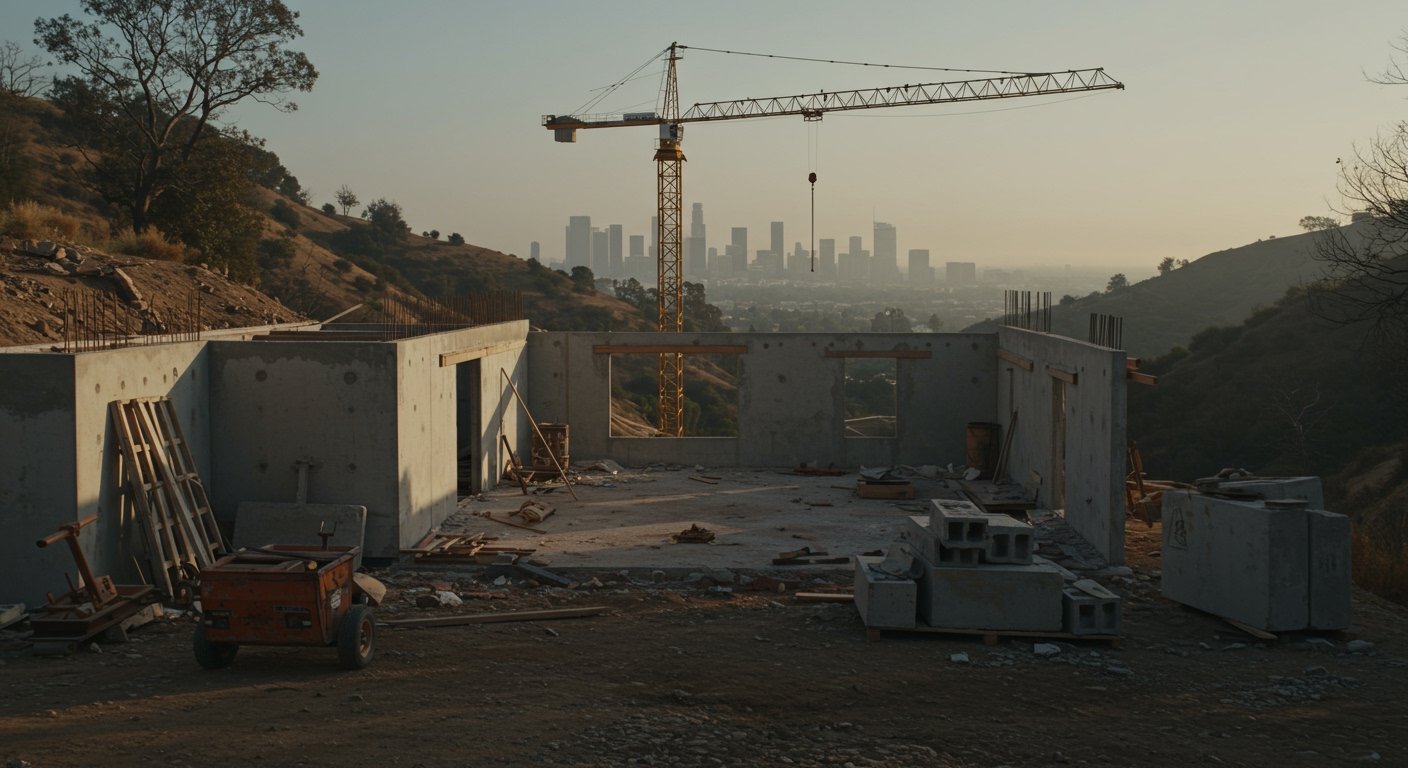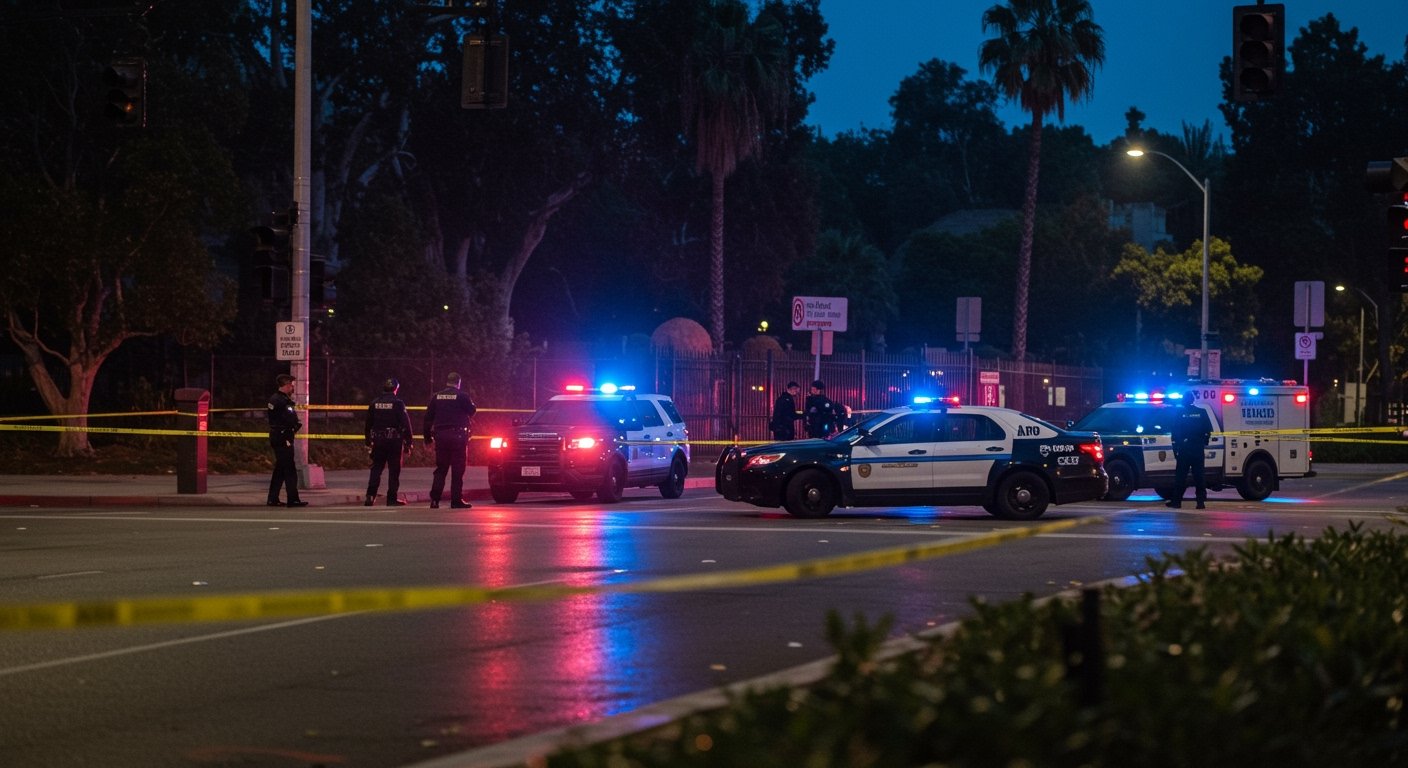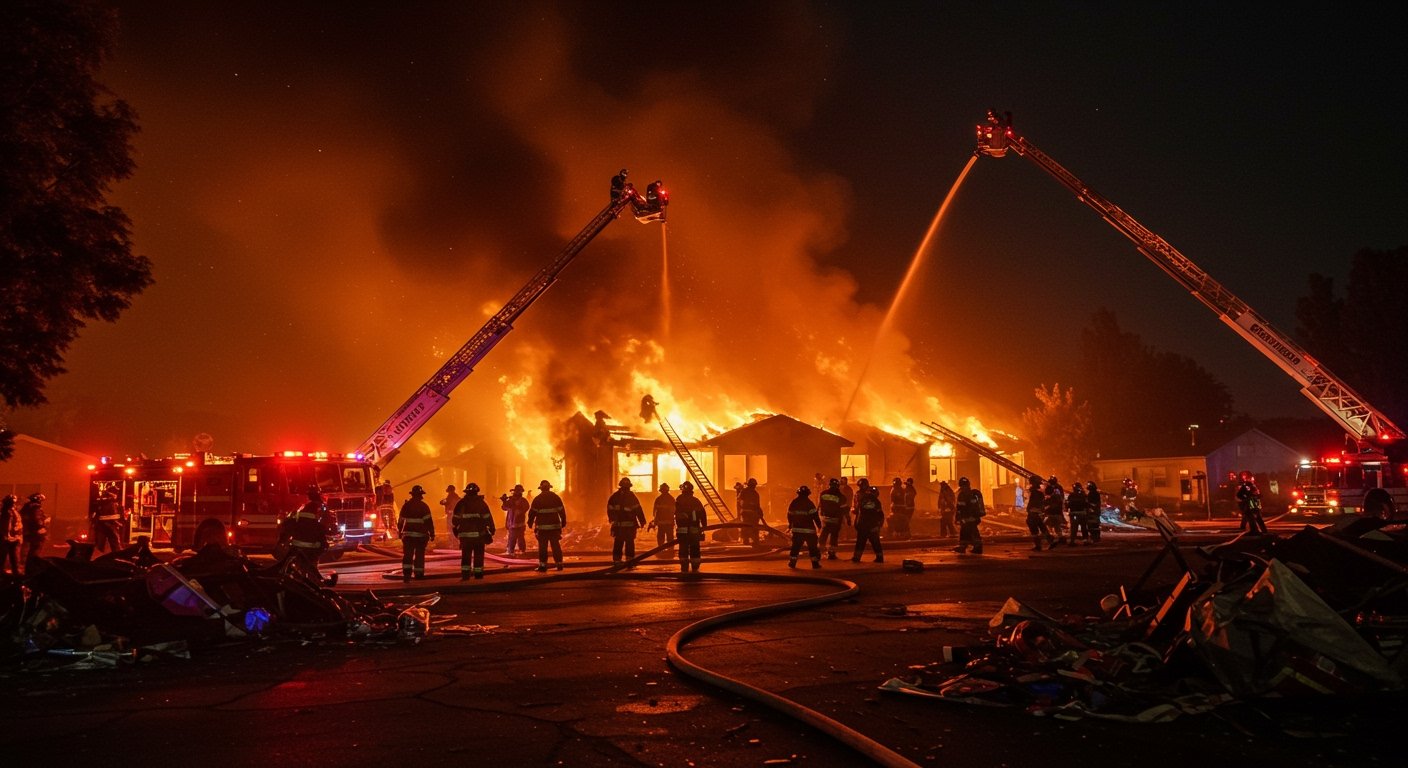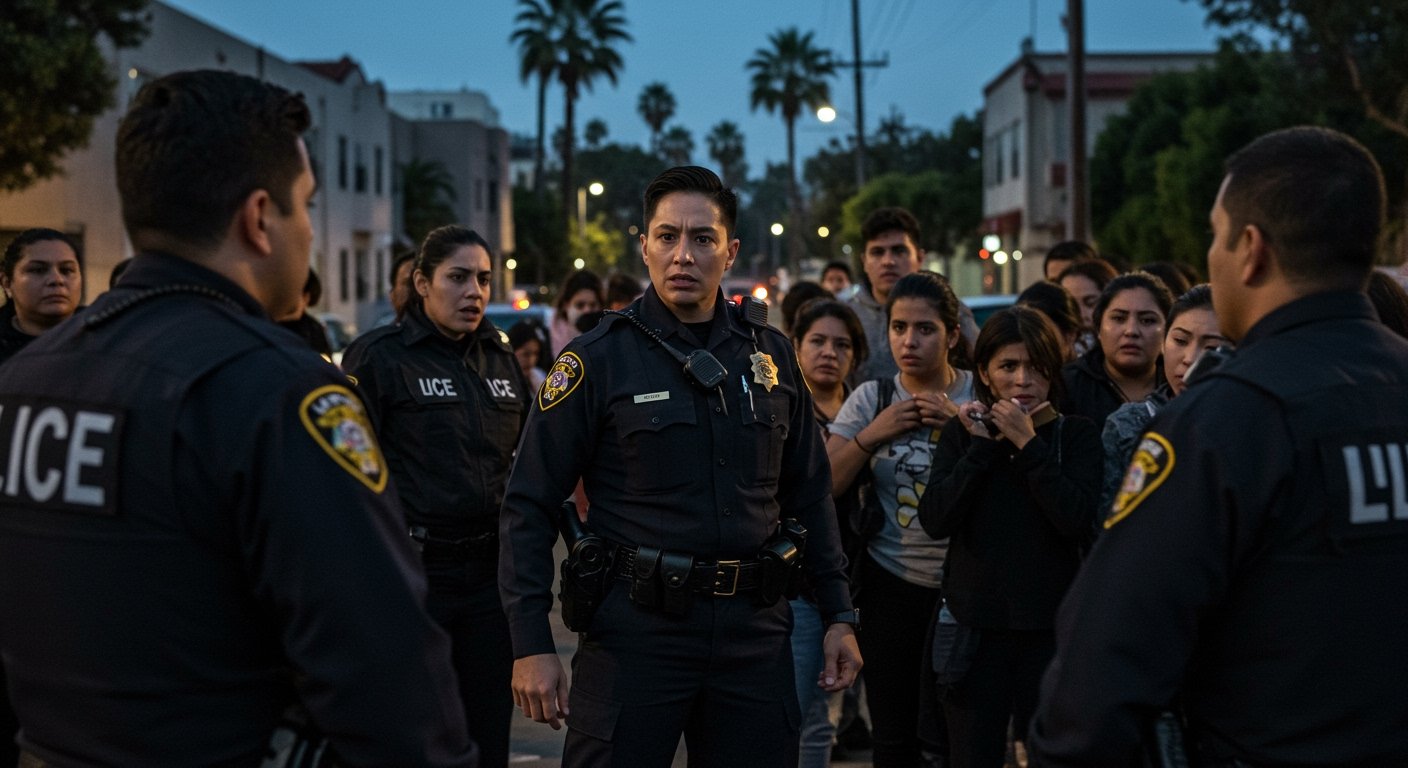Los Angeles, CA – A wave of intensified immigration enforcement actions is significantly impacting the economy of Los Angeles, a major metropolitan area still grappling with the effects of devastating wildfires that occurred six months prior. The concentrated effort by federal immigration agents has led to widespread disruption across various sectors, compelling a critical portion of the workforce to avoid public spaces and job sites, thereby impeding essential recovery and development efforts.
Federal operations conducted between June 6 and June 22 resulted in the apprehension of over 1,600 individuals across the sprawling Los Angeles area. These arrests took place at diverse locations, including active construction sites, car washes, and recognized day-laborer hubs, signaling a broad scope for the enforcement activities.
Economic Disruptions Take Hold
The economic repercussions of these raids are particularly acute in industries reliant on readily available labor. Crucial workers, such as framers and landscapers, who are vital to both ongoing construction and the extensive rebuilding needed in fire-damaged areas, are reportedly abandoning their job sites. This sudden withdrawal of labor has brought renovations of retail shops to a standstill and is making it increasingly difficult for real estate developers to secure the necessary crews to advance projects.
Arturo Sneider, the CEO of Primestor, a firm managing a portfolio valued at $1.2 billion in shopping centers and with 3,000 apartments currently under development, has publicly stated the challenges his company is facing. According to Sneider, they are struggling significantly to staff work, a situation that is directly triggering delays in their projects. This testimony underscores the tangible impact of the labor shortage spurred by the enforcement activities on substantial economic undertakings within the city.
Los Angeles, long recognized as a sanctuary city with policies designed to limit cooperation with federal immigration authorities, appears to be feeling the effects of this federal crackdown with particular intensity. The Trump administration recently filed a lawsuit against Los Angeles last week, challenging these very sanctuary policies, adding a legal dimension to the ongoing tension.
Broader Societal Impacts
The effects of the enforcement sweep extend beyond the immediate economic sphere. The climate of fear has contributed to businesses temporarily shuttering operations. Local government budgets are also feeling the strain, with surged police overtime costs attributed, at least in part, to managing the fallout and potential unrest related to the raids. The fear of apprehension has also reportedly led to the cancellation of planned Fourth of July events in some Latino areas, indicating a chilling effect on community life and public gatherings.
Furthermore, the wave of detentions ignited a week of protests. Demonstrations took place in downtown Los Angeles and outlying suburbs, with some turning violent. The escalating tensions prompted President Donald Trump to authorize the deployment of the National Guard and U.S. Marines, a significant step highlighting the perceived seriousness of the situation by the federal government.
Hindering Wildfire Recovery Efforts
The immigration crackdown is also compounding the already formidable challenges facing communities attempting to recover from the wildfires six months prior. Reconstruction efforts in areas devastated by the fires, such as the Eaton Fire zone located east of Los Angeles, remain notably slow. Despite the urgent need for rebuilding, progress is hindered by the scarcity of labor and the economic uncertainty.
Statistical data from the Eaton Fire zone illustrates the sluggish pace of recovery. Out of more than 900 applications submitted for building permits in the affected area, only 66 have been issued. This stark disparity highlights the impediments to reconstruction. Moreover, approximately 150 scorched lots are currently listed for sale, with many owners unable to afford the cost of rebuilding in the current climate, further indicating the stalled recovery and long-term economic impact on these communities.
Conclusion
The recent surge in immigration enforcement activities in Los Angeles presents a complex challenge, intertwining economic disruption, social unrest, and legal conflict. The raids have not only paralyzed key sectors of the economy but are also actively hindering the vital process of recovery from previous natural disasters. As the city navigates this multifaceted crisis, the long-term consequences for its labor force, industries, and community fabric remain a subject of considerable concern for residents and policymakers alike.





